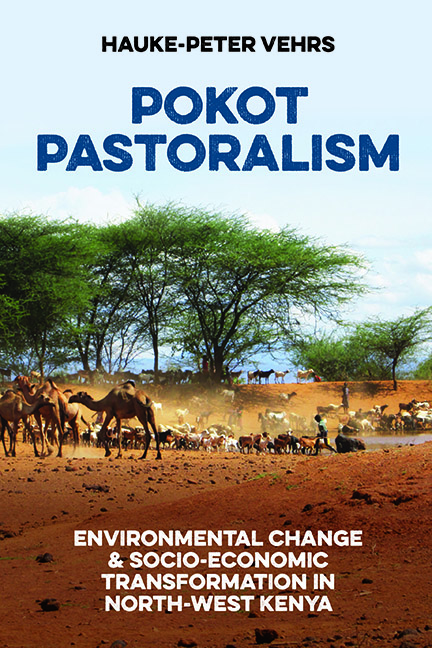Book contents
- Frontmatter
- Dedication
- Contents
- List of Illustrations
- Preface and Acknowledgements
- List of Abbreviations
- 1 Introduction
- 2 East Pokot: A Place and its People
- 3 Pokot Pastoral Livelihoods
- 4 The Paka Community
- 5 Environmental Changes in East Pokot
- 6 Socio-Ecological Transformations in the Agro-Pastoral Highlands
- 7 Ecological Change and Local Livelihoods: Scientific and Pokot Perspectives
- 8 Ecological Invasions: Agents of Socio-Ecological Transformation
- 9 Ecological Challenges and Social Transformations
- Appendix: Lists of Plant Names (Pokot–Scientific and Scientific–Pokot)
- Bibliography
- Index
- Future Rural Africa
Preface and Acknowledgements
Published online by Cambridge University Press: 16 July 2022
- Frontmatter
- Dedication
- Contents
- List of Illustrations
- Preface and Acknowledgements
- List of Abbreviations
- 1 Introduction
- 2 East Pokot: A Place and its People
- 3 Pokot Pastoral Livelihoods
- 4 The Paka Community
- 5 Environmental Changes in East Pokot
- 6 Socio-Ecological Transformations in the Agro-Pastoral Highlands
- 7 Ecological Change and Local Livelihoods: Scientific and Pokot Perspectives
- 8 Ecological Invasions: Agents of Socio-Ecological Transformation
- 9 Ecological Challenges and Social Transformations
- Appendix: Lists of Plant Names (Pokot–Scientific and Scientific–Pokot)
- Bibliography
- Index
- Future Rural Africa
Summary
In 2013, I started work in the interdisciplinary research group at the University of Cologne ‘Resilience, Collapse and Reorganisation in Social-Ecological Systems of East and South Africa's Savannahs’. My main interest during fieldwork in 2014 and 2015 was in the relations between pastoral livelihoods and their environments. Anyone who knows East Pokot will be aware that it has an image characterised by pastoral livelihoods, remoteness and the repeated occurrence of violent conflicts between neighbouring ethnic groups. Obviously, this generalising image does not do justice to the pastoral Pokot I came to know. But how can one adequately do justice to the people, the region and their everyday life? This book is an attempt to show the socio-ecological transformations in East Pokot over the last 250 years by illustrating the extent of changes the Pokot have experienced and the ways they have responded to them. This also includes the interaction between changes in the environment and transformations in the social context.
I also want to deliver an insight into a society that is often discredited and at times feared in the broader Kenyan context. In my opinion, this is an extension of the pre-colonial and colonial perspective emphasising the ‘ferocious and barbarous character’ of Pokot people (Johnston, 1884, p. 295) – a view that is projected onto the group from an external position with little understanding of its internal dynamics. There is a lot that strikes the distanced observer as strange and sometimes even incomprehensible. However, whether we want to particularly emphasise our etic perspective or try to understand and gain a representation of an emic perspective is entirely our decision. Here I want to contribute to an understanding of the pastoral Pokot not just in terms of the inconsistencies that provoke attention, but by delivering an appropriate description of life in the pastoral context. Hence, this book presents two main streams that often reveal the same story and at times even converge: the etic scientific perspective on the socio-ecological transformations and the Pokot perception of these.
Before starting my detailed description of East Pokot livelihoods, I would like to thank the people involved in this research.
- Type
- Chapter
- Information
- Pokot PastoralismEnvironmental Change and Socio-Economic Transformation in North-West Kenya, pp. xi - xiiiPublisher: Boydell & BrewerPrint publication year: 2022



